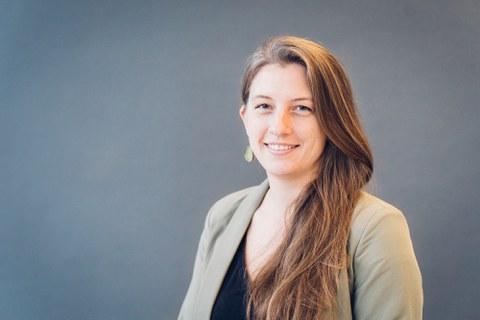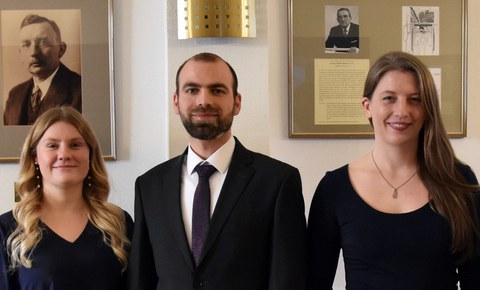Feb 27, 2024
CRTD Graduate Awarded 2023 Georg-Helm Prize for Outstanding PhD Thesis

Dr. Karen Tessmer
TU Dresden has announced the 2023 Georg-Helm Prizes. Dr. Karen Tessmer was awarded for an outstanding PhD thesis and her work on photoreceptor replacement in the Ader group at the Center for Regenerative Therapies Dresden (CRTD).
Our vision relies on photoreceptors – the light sensitive cells inside our retina. These cells have special tips that catch the light coming through our eyes. They convert this light to biological signals and pass them to our brain to process. In age-related macular degeneration (AMD) or retinitis pigmentosa (RP), the photoreceptors degenerate, leading to vision loss. With no effective treatments available, research groups like the Ader lab are working hard on developing new strategies that can lead to restoring vision.
“My thesis was a proof-of-concept study showing that we can replace degenerated photoreceptors in mice,” says Dr. Tessmer. The photoreceptor replacement method that the Ader group uses relies on pluripotent stem cells. These stem cells can be generated from any cell of our body by a technology called reprogramming. They are like blank slates that can be transformed into all types of specialized cells of the body. The Ader group developed a workflow to create photoreceptors from human pluripotent stem cells. The research done by Dr. Tessmer showed that such human photoreceptors produced in the laboratory can partially restore light sensitivity in mice.
Timing is Everything
“In contrast to previous work, one key finding was that the timing of the transplantation is crucial. It cannot wait until the retina is fully degenerated,” explains Dr. Tessmer. “Instead, we show that by intervening early, we give the new cells the opportunity to connect to the remaining healthy cells in the retina. In that way, the newly transplanted photoreceptors could successfully integrate into the tissue, form connections with the residual cells, and ultimately sense light.”
In case of the photoreceptors, the integration into the recipient’s retina is really vital. It is only when the cells are connected within the host tissue that they can mature and develop their special tips that perform the light-sensing function. The research provides hope for future therapeutic approaches for age-related macular degeneration or retinitis pigmentosa.
“I’m very happy that my thesis got awarded with the Georg-Helm Prize,” says Dr. Karen Tessmer who completed her PhD within the framework of the Dresden International Graduate School for Biomedicine and Bioengineering (DIGS-BB). “For me, science is truly a team effort and my supervisor and the colleagues working in the lab were a vital part of making this a successful thesis. This is why I see the award as a testament to the amazing atmosphere and work ethics of the whole Ader group.”
“It was a great pleasure to work with Karen. I’m looking forward to seeing her bright career develop further,“ adds Prof. Marius Ader.

The three recipients of the 2023 Georg-Helm Prize. From left: Lisa Lorenz, M.Sc., Dr. Obada Bahra, and Dr. Karen Tessmer
About Georg-Helm Prize
The Georg Helm Prize was established in 1995 by the Verein zur Förderung von Studierenden der Technischen Universität Dresden e.V. The prize is awarded annually for outstanding doctoral, master's, and diploma theses. The winners receive a gold coin and a medal made of Meissen porcelain.
